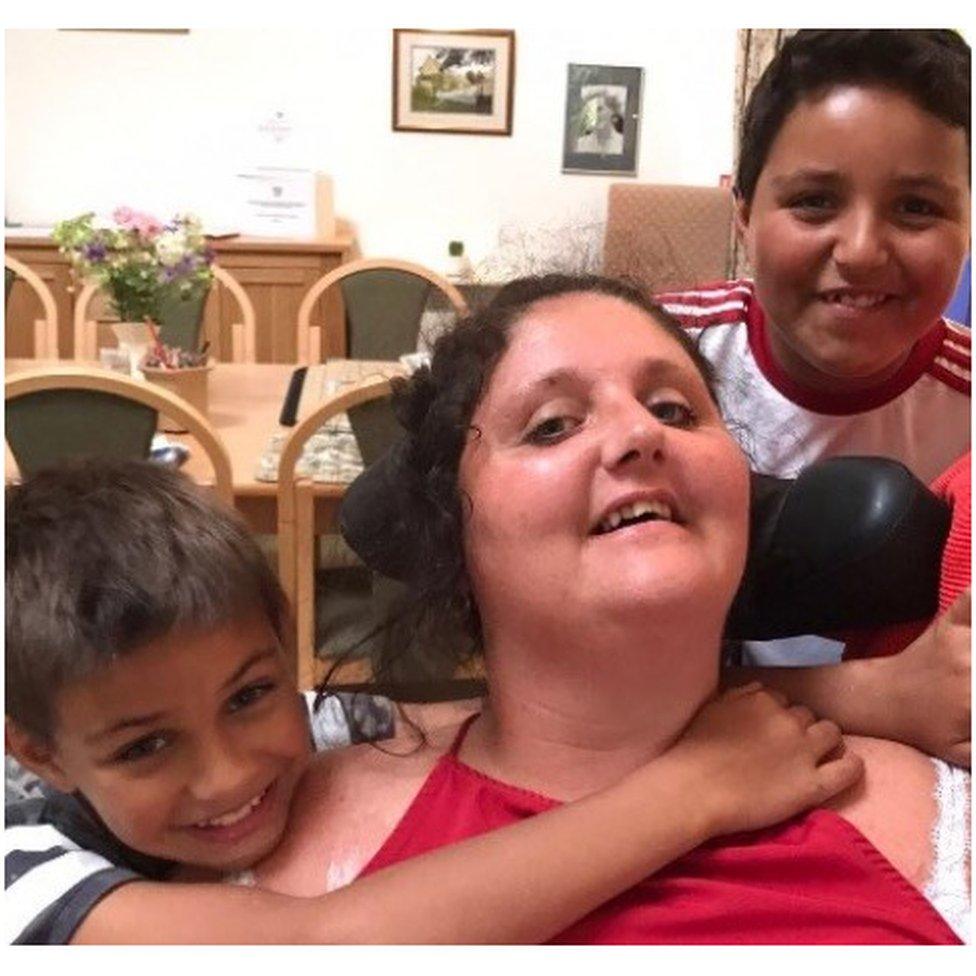Thousands raised for dying Banbury mum's children
- Published
Sam Kyme's dying wish is to keep kids out of care
A woman dying from motor neurone disease has raised more than £30,000 in four days to enable her sons to live with her sister in Australia.
Sam Kyme, 34, of Oxfordshire, can no longer talk, but made the plea through her friends on a crowdfunding website.
The cash will be used to fund the funeral, plane tickets, and legal and school fees.
"My greatest fear is not that I am dying - it is the welfare of my boys," the Banbury mother's message says.
"I fear that Joey and Harry will go into care," it continues.
"My sister lives in Australia and has come over to care for me and the boys.
"My last wish is that my sister is allowed to have my boys once I am gone, to start a new happy life with her family."
Ms Kyme was diagnosed in April and told she had months to live. Within two months she could no longer speak.

Sam Kyme (left) was diagnosed four months after this picture was taken with her sister Pippa

She hopes her boys will be able to have a new life in Australia after her death
Upon reaching their target in donations Pippa Hughes, Ms Kyme's sister, said: "It's amazing. I'm blown away. I can't believe how much people have donated, how generous and kind people are."
"We didn't think it would ever happen... we've appointed a solicitor who's come today and we can move forward, it's unbelievable.
"I wish I could thank every single person that donates. I just haven't got the time caring for Sam 24 hours a day, but I want everyone to know that it's just amazing."
Ms Hughes said the funds meant the family, when the time came, could "all move to Oz, start a new life together, while never forgetting Sam".

Motor neurone disease
Rare condition that progressively damages parts of the nervous system
Occurs when specialist nerve cells in the brain and spinal cord called motor neurones stop working properly
They control muscle activity such as gripping, walking, speaking, swallowing, and breathing
In 5% of cases there is a family history of the disease, or a related condition
Affects around two in every 100,000 people in the UK each year
There is currently no cure
Source: NHS Choices, external
